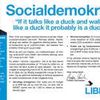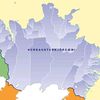19.8.2008 | 08:41
Sarkozy útskýrir Georgíumáliđ - Evrópusambandiđ stóđ fyrir sínu
Í gćr birtist grein í Le Figaro og Washington Post eftir Nicolas Sarkozy. Ţar fer hann yfir ađkomu Frakka og Evrópusambandsins sem og SŢ ađ átökum Rússa og Georgíumanna.
Ţađ varđ ađ koma á vopnahléi segir hann.
My long conversations with Dmitry Medvedev and Vladimir Putin at the Kremlin during the day and with Mikheil Saakashvili in Tbilisi during the night finally made it possible to gain the two parties' agreement to a six-point plan to end the crisis
Og ţađ tókst en ţađ er ekki allt unniđ međ ţví, langt í frá.
This plan did not solve everything. It did not aim to. But it did get the parties to agree to the cease-fire.
Fyrsti punktur samkomulagsins var brotthvarf rússnenska hersins ţangađ sem ţeir voru fyrir átökin.
This withdrawal has to be carried out without delay. For me, this point is not negotiable.
If this clause of the cease-fire agreement is not abided by rapidly and completely, I will be prompted to convene an extraordinary meeting of the European Council to decide about the consequences that should follow.
Ţá er komiđ ađ ţví, Rússar hafa nefnilega dregiđ fćturna í ađ fylgja ţessum punkti samkomulagsins. Neyđarfundur hjá NATO í gangi og svo ţarf ađ vinna máliđ hjá SŢ.
En hvert er framhaldiđ?
We must also determine whether Russia's intervention was a one-time, brutal -- and excessive -- response, or whether it is ushering in a new hardening of Moscow's line toward its neighbors and toward the international community, which would inevitably have consequences for its relationship with the European Union.
Og lćrdómurinn?
But there are lessons we can draw from this crisis. First, the European Union rose to the occasion. At the behest of the French presidency, Europe put itself on the front lines from the outset of hostilities to resolve this conflict -- the third on European soil since the fall of the Berlin Wall. Throughout the first phase of this latest crisis, Europe's commitment was decisive: It was the European Union, through France, that created a space for diplomacy by quickly proposing reasonable terms for a cease-fire and rendering the political cost of pursuing war exorbitant for both parties. If our efforts finally paid off, it is because Europe -- despite a few differences in tone -- did not limit itself to condemnation. By choosing action and negotiation over rhetoric and mere denunciation, Europe was able to reestablish a positive balance of strength with Russia and to be heard by that country. When the house is burning, the priority is to put out the fire. Europe can be proud of this success, which proves that it can do a lot when it is motivated by a strong political will.
Ţessi grein er ágćt í sjálfu sér og ber auđvitađ međ sér nokkra eftirtektarverđa punkta. Fyrst og fremst ađ Evrópusambandiđ sé nćgilega öflugt til ađ takast á viđ vandamál af ţessari stćrđargráđu.
Svo er bara ađ sjá hvernig málin ţróast.
Flokkur: Stjórnmál og samfélag | Facebook





 eyglohardar
eyglohardar
 bjarnihardar
bjarnihardar
 salvor
salvor
 walgerdur
walgerdur
 stebbifr
stebbifr
 esv
esv
 hlynurh
hlynurh
 omarragnarsson
omarragnarsson
 ipanama
ipanama
 ippa
ippa
 agbjarn
agbjarn
 kolgrima
kolgrima
 siggisig
siggisig
 arh
arh
 sigurdurkari
sigurdurkari
 thorirallajoa
thorirallajoa
 gthg
gthg
 malacai
malacai
 katlaa
katlaa
 bjb
bjb
 anitakg
anitakg
 ragnar73
ragnar73
 godinn
godinn
 steinibriem
steinibriem
Bćta viđ athugasemd [Innskráning]
Ekki er lengur hćgt ađ skrifa athugasemdir viđ fćrsluna, ţar sem tímamörk á athugasemdir eru liđin.